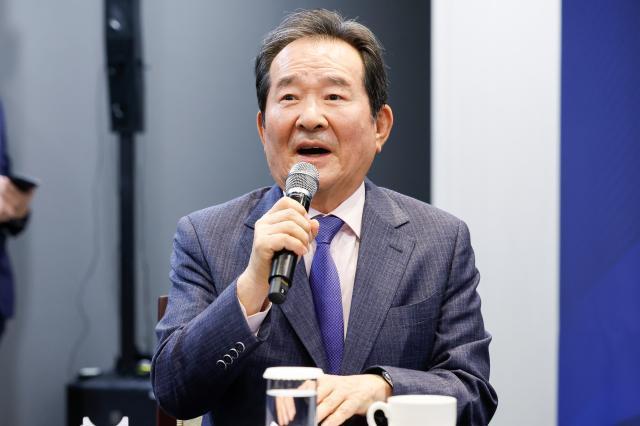
In a Facebook post, he wrote, "I fully understand concerns that making an exception could set a bad precedent or be widely misused. But if that happens, the law can intervene to amend any flawed regulations."
Seeking support from the main opposition Democratic Party, which holds the majority in the 300-member National Assembly, Chung stressed that flexible hours are essential in certain industries like semiconductor manufacturers and other developers, which see workloads increase dramatically at certain times of the year, and proposed allowing them to extend the weekly overtime cap at busy times.
He explained, citing overseas examples, "The U.S., a global leader in artificial intelligence (AI) and other advanced technologies, has no cap on weekly working hours, while Taiwan generally tolerates overtime that exceeds legal limits." He further elaborated that China is much more flexible when it comes to working hours, as it desperately wants to catch up with the U.S.
"It shouldn't be an overload of work, but how can we compete with companies like Nvidia and TSMC, whose workers and researchers pursue innovation without restrictions on working hours?" he questioned.
"In order to respond to unexpected variables and circumstances, we should not be too rigid," he added.
Chung also called for the passage of at least part of the relevant bills if a consensus between the ruling People Power Party (PPP) and the DP cannot be reached, as they could be amended later through discussions and negotiations.
"Failure to reach an agreement would mean the collapse of the country's mainstay semiconductor industry," he warned, urging lawmakers to engage in negotiations with a sense of urgency.
Pundits see his latest remarks as a signal of his return to politics, after having distanced himself from it for some time.
Copyright ⓒ Aju Press All rights reserved.

